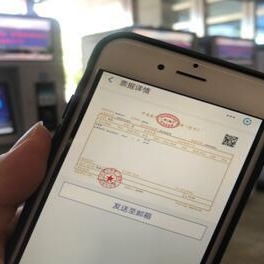


The public can use electronic receipts to apply for payment of expenses in China starting from the beginning of next year, and the e-bills can be used as certificates for keeping accounts and managing archives, according to the Ministry of Finance.
The e-bill is the digitalized receipt voucher invoiced by the government to collect fees, usually for nonprofit public services such as healthcare, education and transportation. In China, as of today, people mainly receive paper bills for the payment of medical and tuition fees, as well as highway tolls.
From Jan 1, the electronic receipts and other digitalized bills will have the same legal force as those in paper, the Ministry of Finance said in a statement published on its website on Monday.
The ministry has pushed forward the e-bill reform, which has been expanded to 29 provinces in China by December.
Since the outbreak of the COVID-19 pandemic, e-bills, which involve "zero contact" and high efficiency in use, have been broadly adopted especially for medical treatments and donations, the finance ministry said.
The West China Hospital of Sichuan University in Chengdu, Sichuan province, delivered China's first e-bill in September 2018. In Beijing, e-bills have been used for parking. Shenzhen, the coastal city in South China's Guangdong province, embedded the blockchain technology into the e-bill issuance and management system for paying traffic fines, medical treatment fees and insurance.
At present, 22 provinces in China have joined the national network of the e-bill management system, through which people from different areas can check whether the bill is true or false. That helps to solve problems of medical and commercial insurance reimbursement crossing different regions, according to the statement.
If you have any problems with this article, please contact us at app@chinadaily.com.cn and we'll immediately get back to you.